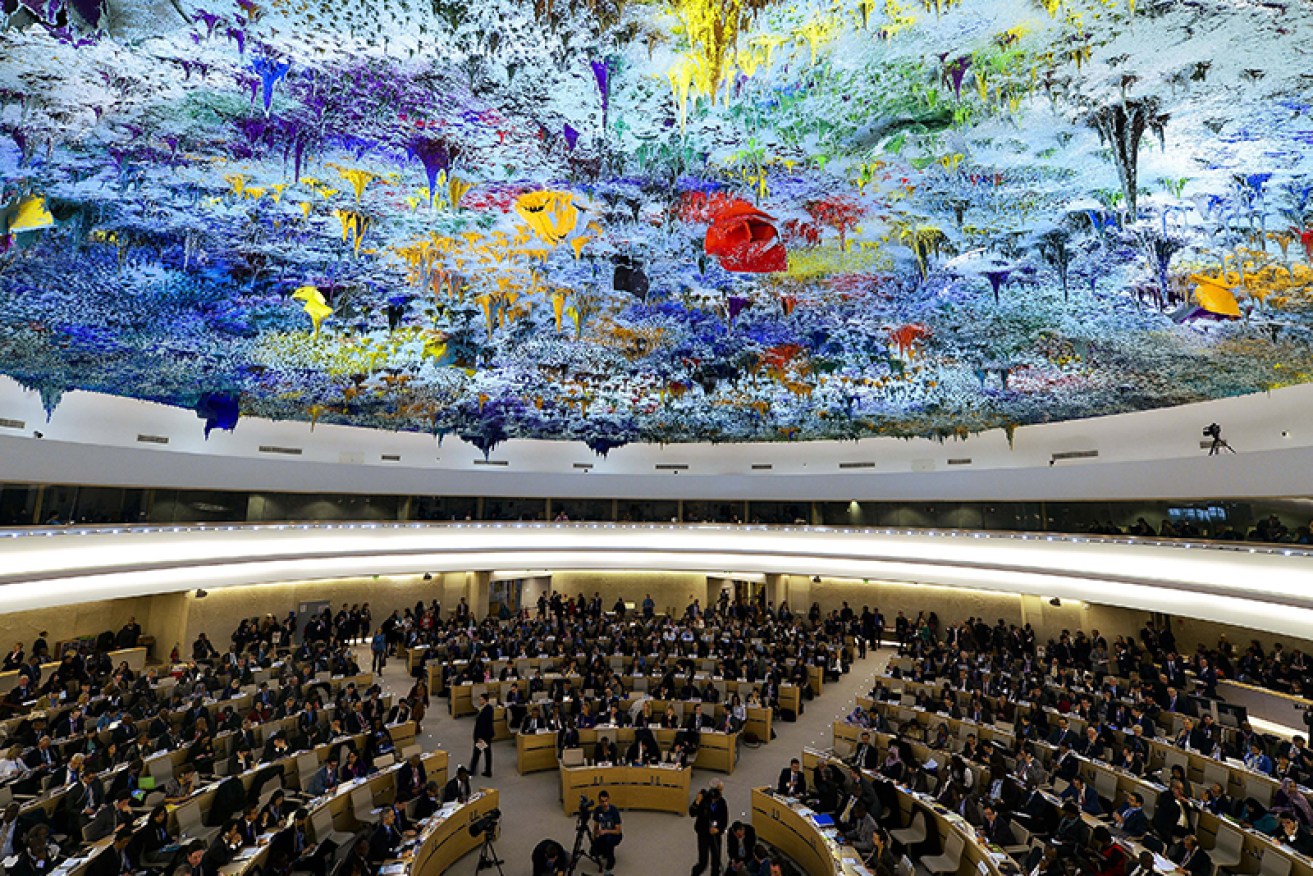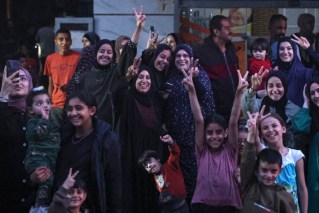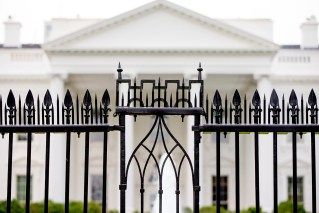United Nations slams Australia on boat turnbacks

AAP
Australia has come under fire for its boat turnbacks and offshore detention policies at a UN Human Rights Council performance review in Geneva.
But the Australian delegation on Monday vigorously defended the policies, saying they saved lives at sea and allowed Australia to take in many thousands of refugees through proper channels.
The review session took place as Australian authorities worked to calm tensions at the Christmas Island detention centre after the death on Sunday of an Iranian Kurdish asylum seeker who escaped from the facility.
• Crash perhaps an ‘act of terror’
• Thirty saucy facts about Charles and Camilla
• Dying school captain’s inspiring valedictory speech
Given the chance on Monday to comment on Australia’s human rights performance, country after country raised the issue of Canberra’s controversial asylum seeker policies, many highlighting the detention of children as a key issue.
Germany’s Franck Jarash urged Australia to remove children and their families from migrant detention centres “in particular survivors of torture and trauma” and to review offshore detention of migrants in Nauru and on PNG’s Manus Island.
Ireland’s delegate also expressed concern at child detention and at Australian restrictions that recently deterred a UN rights official from visiting the detention centre on Nauru.
Guatemala’s delegate criticised the “pushback of boats” by Australia without proper assessment of whether asylum seekers aboard required protection.
And Egypt’s Mohammed Elmolla said reports of “racial discrimination and violence, rising Islamaphobia, mandatory immigration detention and the policy of pushback of migrants, refugees and asylum seekers’ boats in international waters require serious and prompt attention.”
Other countries to raise concerns about Australia’s asylum seeker policies were the United States, Canada, France, Greece, Sweden, Denmark, Japan, Iceland, Iran, Pakistan and Kenya.
Australian delegation head John Reid of the attorney-general’s department told the council that Australia’s strong border protection measures had “most importantly saved lives at sea” but also enabled it to maintain significant refugee settlement programs.
He said Australia recently committed to take in 12,000 refugees from the conflicts in Syria and Iraq.
Steve McGlynn of the Immigration Department said the strong measures sent “a clear message that people smugglers do not offer a path to Australia”.
Andrew Goledzinowski, ambassador for people smuggling issues, said more than 1200 migrants had died in attempts to reach Australia by boat, prompting the Australian community to decide it could “no longer tolerate such a level of carnage”.
He said the deterrent policies introduced meant that in the last 18 months the number of asylum seekers who had died at sea was zero.
Mr Goledzinowski assured the council that “no asylum seeker who engages our protection obligations is ever returned to a situation of danger”.
Many delegates on Monday also expressed concerns about Australia’s treatment of its indigenous peoples, including high incarceration rates for young Aboriginal men.
Mr Reid said gaps between indigenous and non-indigenous Australians in key life indicators remained “unacceptably wide” and more needed to be done.
In response to another concern the Australian delegation reported that Canberra was actively considering whether to ratify the Optional Protocol to the Convention Against Torture (OP-CAT).








